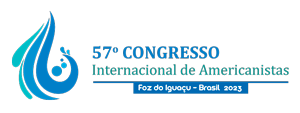| Dados do autor | |
|---|---|
| Sua instituição | Université Paris 1 Panthéon Sorbonne |
| País de origem do autor | Chile |
| Dados co-autor(es) [Máximo de 2 co-autores] | |
| Sua titulação | Estudiante de Doctorado |
| Proposta de Paper | |
| Área Temática | 07. Derechos Humanos y Cultura de la Paz |
| Grupo Temático | ¿La(s) crisis, nuevo instrumento de gestión de lo social (y de lo político)? Gobernar mediante la crisis, experiencias latinoamericanas |
| Título | Prepare Yourself to be Prepared: Restructuring Disaster Management in the United States and Chile through the Circulation of the Community Emergency Response Team program |
| Resumo | The study of the circulation of a fiction of the Community Emergency Response Team (CERT) program from the United States to Chile illustrates the institutionalization of political power dynamics and the reconfiguration of disaster management within these two neoliberal states. The creation of CERT in California in 1985, its diffusion within the United States during the 1990s and its implementation in Chile following the Maule disaster in 2010 reflect the expansion, over the course of the past thirty years, of these two States’ spheres of activity. Accordingly, in the United States the circulation of materials, ideas and people associated with the CERT program illustrates: the consolidation in the 1980s of the role of California as the State leader in disaster management; the reorientation in the 1990s of national programs of the Federal Emergency Management Agency (FEMA) towards community level management of risks; the diffusion of the “distributed preparedness” rationale from the nuclear domain to other areas of state action, a process reinforced by the annexation of FEMA by the Department of Homeland Security in 2003. In the Chilean case the transfer of the CERT program makes explicit: the informal attempts of organizational and functional restructuring of the Oficina Nacional de Emergencias del Ministerio del Interior y Seguridad Pública by internal actors, born as a coordinating bureau under the military dictatorship; the practices of individual responsabilization which seek to redefine the role of a State which would no longer be uniquely involved in the handling of the emergency services but also the preparation of citizens to cooperate and provide assistance to emergency service professionals; the practices of exclusion and cooperation characterizing frictions between state and private actors, owing to which the Chilean State may expand its sphere of activity without threatening the neoliberal principles at its core. |
| Palavras-chave | |
| Palavras-chave |
|
